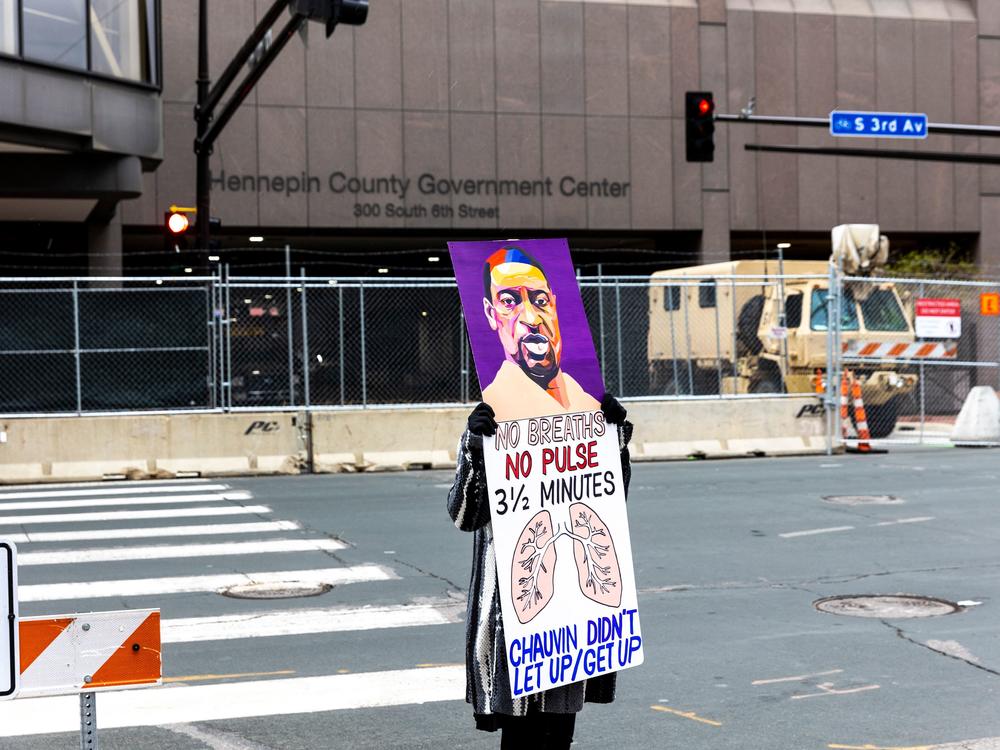Section Branding
Header Content
1st Full Day Of Jury Deliberations Underway In Chauvin Murder Trial
Primary Content
The panel of 12 jurors weighing the case against the fired Minneapolis police officer charged with murdering George Floyd has resumed deliberations.
The jury, who are sequestered in a nearby hotel under the supervision of Hennepin County Sheriff's deputies, are considering three charges against former officer Derek Chauvin: second-degree unintentional murder, third-degree murder and second-degree manslaughter.
The jurors met today at 8 a.m. local time (9 a.m. ET) for their first full day of deliberations. They met for four hours Monday evening after closing arguments wrapped.
"You must be absolutely fair," Hennepin County Judge Peter Cahill said to the jurors Monday. "I am certain that you realize that this case is important and serious and therefore deserves your careful consideration."
A verdict on any charge must be unanimous, but the jury can choose to convict Chauvin of one or some of the charges but not others. If the jurors cannot come to an agreement, the case would end in a mistrial. Prosecutors would then have to decide whether to try Chauvin again.
Though the trial has been televised nationwide, the 12-person jury has remained anonymous throughout, never appearing on screen.
It is a diverse group, with six white people, four Black people and two who identify as multiracial. Seven are women, and five are men. At least one is an immigrant. They range in age from their 20s to their 60s. The two alternates, who were both white women, have been dismissed.
In two previous high-profile police shooting cases in Minnesota, deliberations lasted less than a week.
In the death of Philando Castile, a Black man who was shot by a police officer during a traffic stop after disclosing he was legally carrying a gun, jurors acquitted the officer after 27 hours of deliberation over the course of five days.
By contrast, jurors needed just 11 hours to convict Mohamed Noor, a former Minneapolis police officer who shot Justine Damond, a white woman, when she approached his squad car after calling 911 to report a possible sexual assault happening nearby. Noor, who is Somali American, is believed to be the only Minnesota officer to be convicted in an on-duty death case.
Copyright 2021 NPR. To see more, visit https://www.npr.org.

